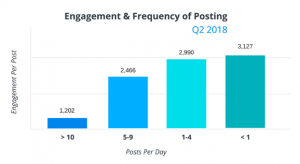We’ve all heard the phrase, “You can’t teach old dogs new tricks.” It could be rephrased, “You can’t teach ‘old’ business people new tricks.”
If this really were true, then every business is condemned to failure. No organization can sustain itself and grow, unless they are committed to learn, change, execute, make mistakes, learn…. No organization can sustain growth or leadership, unless they can leave a past that no longer works behind.
If you’re a millennial, or even Gen Z, don’t get too comfortable. If you work in a relatively young company, this applies to you, as well. This has nothing to do with age or time spent with the company. It’s all in your mindset, your orientation learning, unlearning, growth and success.
Too many people and organizations, regardless of chronological age are very old–ancient. The signs of it are obvious, as you talk to or observe people:
- “This is the way we have always done things…….”
- “We couldn’t possibly do that, it doesn’t fit our guidelines, processes, procedures…..”
- “We used to be successful doing this, we just have to double down on our efforts….”
- “It takes too much time and effort….”
Or there are the other signals:
- Formerly very successful companies are no longer so successful, but management beatings to improve execution still continue.
- There’s a “new kid on the block,” taking share away from the established companies.
- Or you see the same approaches to marketing and content–product spec sheets, data sheets, corporate presentations or proposals that focus 90% of the slides talking about how “wonderful we are.”
- Marketing, sales, customer service processes or systems, that have not been reviewed or changed in several years.
- Training programs focused on product knowledge, not customer, industry, market knowledge.
- Training programs focused on sales techniques and things like the “15 ways to close a deal.”
- Target customers are not defined, changed or updated. Personas not defined, changed or updated.
- Business models hopelessly outdated and no longer relevant to the way companies make money.
- Organizations stymied by traditional silos, not looking at meaningful collaboration across those silos. Not looking at alignment of strategies, goals, metrics across the silo.
- Organizations who are not customer obsessed.
- Leaders and people do not read, do not participate in conferences, trade shows.
- The people and organizations we watch and “learn from,” are the same old one’s we have always watched. Organizations never look at non traditional competitors, business models or practices in other industries.
- Organizations and people who think learning, change, and improvement is effectively copying what competition does.
The rate of disruption and changes in many markets creates dinosaurs out of organizations that may be only a few years old. And we see organizations that have been around for decades that are nimble, adaptable, and refuse to be prisoners of their own experience.
Learning, change, improvement also means unlearning. We can’t always carry what we’ve done in the past, putting a fresh coat of paint–perhaps through technology. We can’t layer new practice on old unless we want to collapse under the weight of all the legacy. If what worked in the past is no longer effective, we have to unlearn it and un-practice it. We need to move on, change, figure out what’s appropriate for the future.
We often, have to forget what made us successful in the past, posing new questions, “What drives success in the future?” “What are we doing now that prevents us from responding to customer needs as effectively and efficiently as we can?” “What practices should we be stopping?” “How do we learn and innovate for the future?”
The same issues impact us, as individuals. We have to continually learn and we have to unlearn. We can’t be held prisoner by the things that used to work, when they are no longer effective and producing results.
(169)




